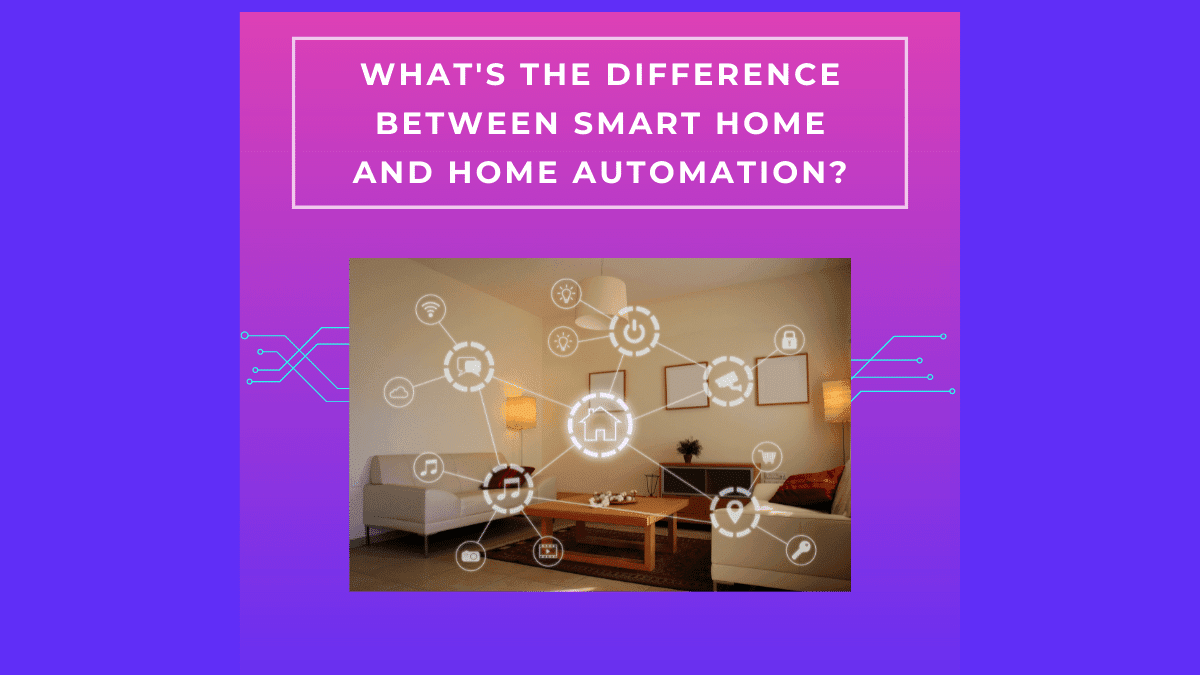So, you’ve heard a lot about “smart homes” and “home automation.” But what’s the difference between the two? And which one is right for you? This blog post will discuss the key differences between smart homes and home automation and help you decide which one is best for your needs.
A Smart Home is a home that has been outfitted with technology to make it more convenient, comfortable, and energy efficient. Usually, people can control a series of devices and sensors by using an app on their phone or connecting to the internet. This can include automated lighting, thermostats, security systems, etc.
How do smart homes work?
In order for a home to be “smart,” it needs to have some type of connectivity that allows the homeowner to interact with the devices in the home. This can be done through a variety of methods, including:
-Z-Wave: A low-power radio frequency that is used for short-range communication between devices. It is typically used for home automation because it doesn’t require a lot of power and can be used with battery-operated devices.
-Zigbee: A wireless protocol that is similar to Bluetooth. It has low power consumption and is often used for devices that need to be always on, such as security cameras.
-WiFi: The most common method of connectivity, WiFi is used to connect devices to the internet.
-Bluetooth: A wireless technology often used for connecting devices like headphones and speaker systems.
Home automation, on the other hand, is a term that refers to the use of technology to automate tasks in the home. This can include everything from turning on the lights when you enter a room to automatically adding detergent to your washing machine.
Check out our blog post dedicated to Smart Homes.
What are home automation systems?
On the other hand, a Home Automation system takes things a step further by adding automation and control to many of the systems in your home. This means you can program your system to do things automatically, such as turning off the lights when you leave the room or setting the temperature based on whether someone is home. Home Automation systems are usually more expensive than Smart Home systems, but they offer more convenience and peace of mind.
Home Automation is an example of the Consumer level of IoT. This means that the system is designed to be used by regular people in their homes without the need for a lot of technical knowledge. However, installing and configuring a Home Automation system can be more complicated than a Smart Home system.
Ultimately, The user will program the home automation system to initiate an action to certain events.The concept is that certain activities you do regularly should be automated so that you don’t need to prepare as much ahead of time.
Smart Home Systems are becoming more and more popular as people become more aware of the benefits of having a Smart Home. However, Home Automation systems are still the gold standard when it comes to convenience and control. If you’re looking for a system that will make your life easier, then a Home Automation system is probably the right choice.
Home Automation Devices
Some of the most popular home automation devices include:
-Lighting control
-Security systems
-Thermostats
-Audio/visual equipment
-Window coverings
You can set these things to automatically change settings during specific conditions without interfacing with the device beyond set-up.
Home Automation Controllers
There are two types of Home Automation controllers: hardware and software.
Hardware controllers are physical devices that connect to your home’s wiring and allow you to control your automation system. Software controllers are apps that run on your smart device and connect to a hardware controller (usually via Wi-Fi or Bluetooth).
Conclusion
Smart Home systems are a great way to make your life easier and save money on your energy bill. However, if you’re looking for the ultimate in convenience and control, then a Home Automation system is the way to go. Thanks for reading! We hope this post helped you understand the difference between Smart Homes and Home Automation.
